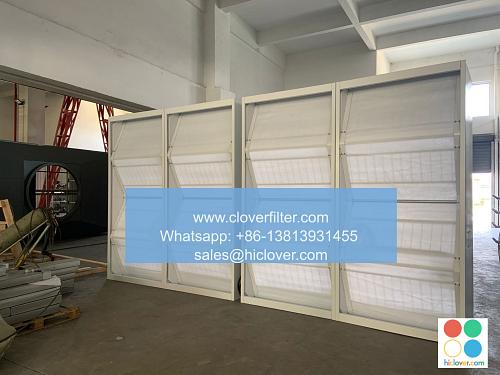Can You Clean a Dirty Air Filter or Should You Replace It?

Air filters are a crucial component in various applications, including heating, ventilation, and air conditioning (HVAC) systems, air purifiers, and industrial processes. Over time, these filters accumulate dirt, dust, and other airborne particles, reducing their effectiveness and potentially causing harm to the surrounding environment. In this article, we will explore the pros and cons of cleaning a dirty air filter versus replacing it, highlighting various application areas and key considerations.
Understanding Air Filter Types and Applications
There are several types of air filters, each designed for specific applications and industries. Some common types include:
* Fiberglass filters: used in residential and commercial HVAC systems
* Pleated filters: used in air purifiers and industrial processes
* Activated carbon filters: used in air purifiers and odor control applications
* HEPA filters: used in pharmaceutical, biotechnology, and medical applications
Each type of filter has its unique characteristics, and the decision to clean or replace it depends on the specific application and maintenance requirements.
Pros and Cons of Cleaning a Dirty Air Filter
Cleaning a dirty air filter can be a cost-effective and environmentally friendly option, but it’s essential to weigh the pros and cons:
* Pros:
+ Reduced waste and minimized environmental impact
+ Cost savings compared to replacing the filter
+ Potential to restore filter performance
* Cons:
+ Risk of damaging the filter or compromising its integrity
+ Potential for re-contamination or re-clogging
+ Limited effectiveness, depending on the type of filter and degree of dirtiness
When to Clean and When to Replace an Air Filter
The decision to clean or replace an air filter depends on various factors, including:
* Filter type: some filters, like HEPA filters, are designed to be replaced, while others, like pleated filters, can be cleaned
* Degree of dirtiness: if the filter is heavily clogged or damaged, replacement may be the best option
* Application: in critical applications, such as pharmaceutical or medical, replacement may be necessary to ensure maximum safety and efficacy
* Maintenance requirements: regular cleaning and maintenance schedules can help extend filter life and optimize performance
Best Practices for Cleaning Air Filters
If you decide to clean a dirty air filter, follow these best practices:
* Use gentle cleaning methods: avoid using harsh chemicals or abrasive materials that can damage the filter
* Follow manufacturer guidelines: consult the manufacturer’s instructions for specific cleaning recommendations
* Inspect the filter: after cleaning, inspect the filter for any signs of damage or compromise
* Replace the filter if necessary: if the filter is damaged or ineffective, replace it with a new one to ensure optimal performance and safety
Conclusion
In conclusion, the decision to clean or replace a dirty air filter depends on various factors, including the type of filter, application, and degree of dirtiness. By understanding the pros and cons of cleaning versus replacing, and following best practices for cleaning and maintenance, you can ensure optimal performance, maximum safety, and minimized environmental impact in various application areas, including HVAC systems, air purifiers, and industrial processes. Remember to always prioritize regular maintenance and inspect filters regularly to ensure they are functioning effectively and efficiently. Prompt

